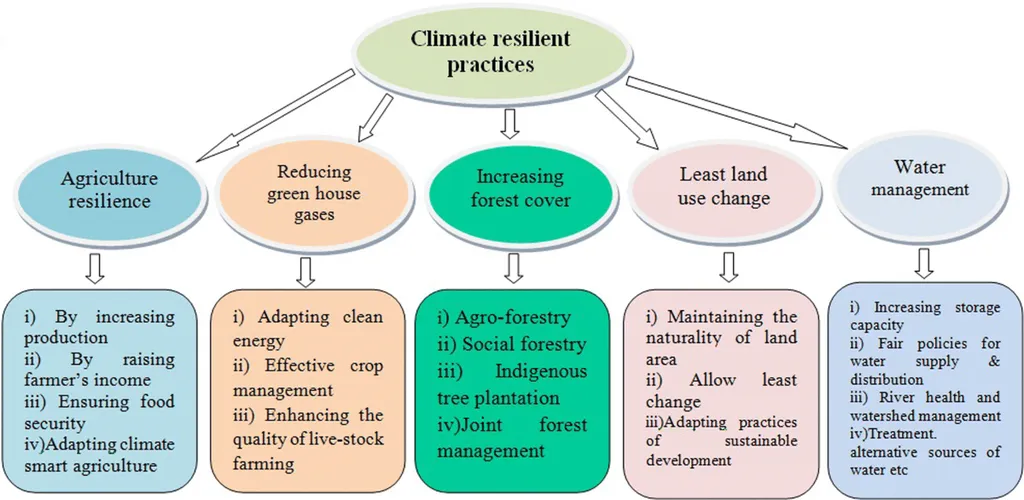In the face of climate change, water management has become a critical issue for agricultural communities worldwide. A recent study published in *Agricultural Water Management* sheds light on how community engagement can enhance climate resilience in water management, offering valuable insights for the agriculture sector. The research, led by Mariana Villada-Canela of the Universidad Autónoma de Baja California, compares approaches in Southern California and Baja California, Mexico, highlighting both challenges and opportunities for innovation.
The study, based on interviews with key stakeholders, reveals that community involvement in water management can significantly bolster resilience to climate change impacts. “Community engagement fosters a sense of ownership and shared responsibility, leading to more sustainable and effective water management practices,” Villada-Canela explains. This is particularly crucial for the agriculture sector, which relies heavily on consistent water availability for crop production and livestock management.
Both regions face common hurdles, such as limited financial resources and communication gaps among stakeholders. However, each region also presents unique opportunities for adaptation and innovation. In California, for instance, the formation of local water committees has proven effective in bridging communication gaps and incorporating diverse perspectives into decision-making processes. Meanwhile, in Baja California, capacity-building programs have empowered local communities to actively participate in water management, enhancing their ability to adapt to changing conditions.
The study underscores the importance of integrating non-technical knowledge into water management decisions. “Local knowledge and experiences are invaluable in understanding the nuances of water use and availability,” Villada-Canela notes. This inclusive approach not only strengthens community resilience but also ensures that water management strategies are tailored to the specific needs and contexts of agricultural communities.
The research proposes several recommendations to strengthen water management policies, emphasizing the need for legal frameworks and institutional arrangements that facilitate community participation. For the agriculture sector, this means a shift towards more collaborative and inclusive water management practices, which can enhance water security and support sustainable farming practices.
As climate change continues to impact water availability, the findings of this study offer a roadmap for agricultural communities to build resilience and adapt to changing conditions. By fostering community engagement and integrating local knowledge into decision-making processes, the agriculture sector can navigate the challenges posed by climate change and ensure sustainable water management for future generations.
The study, led by Mariana Villada-Canela of the Universidad Autónoma de Baja California, Instituto de Investigaciones Oceanológicas, Ensenada, Baja California, Mexico, was published in *Agricultural Water Management*.

